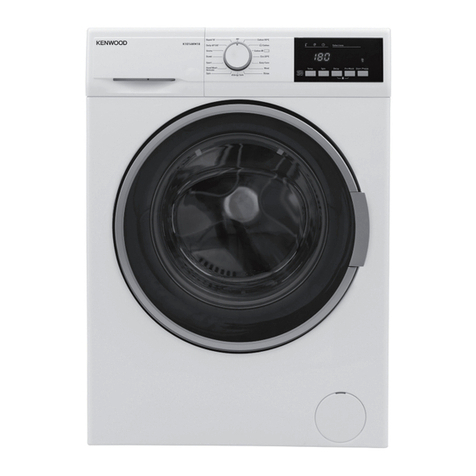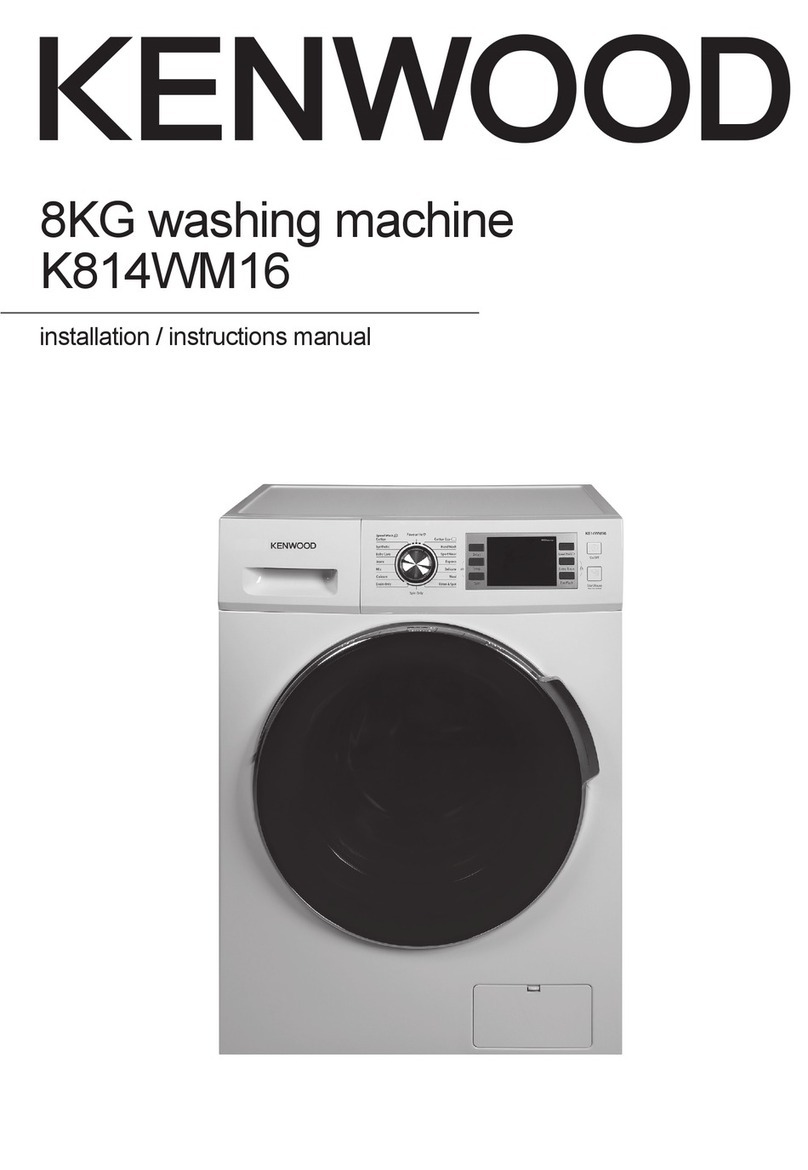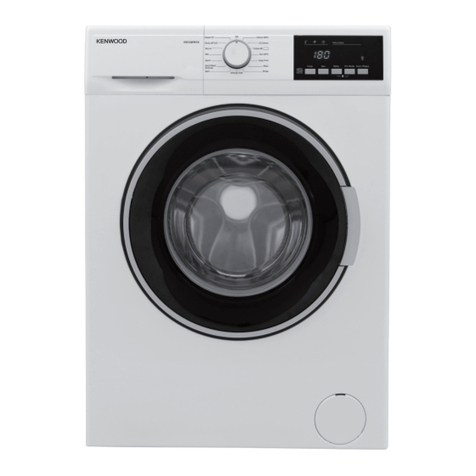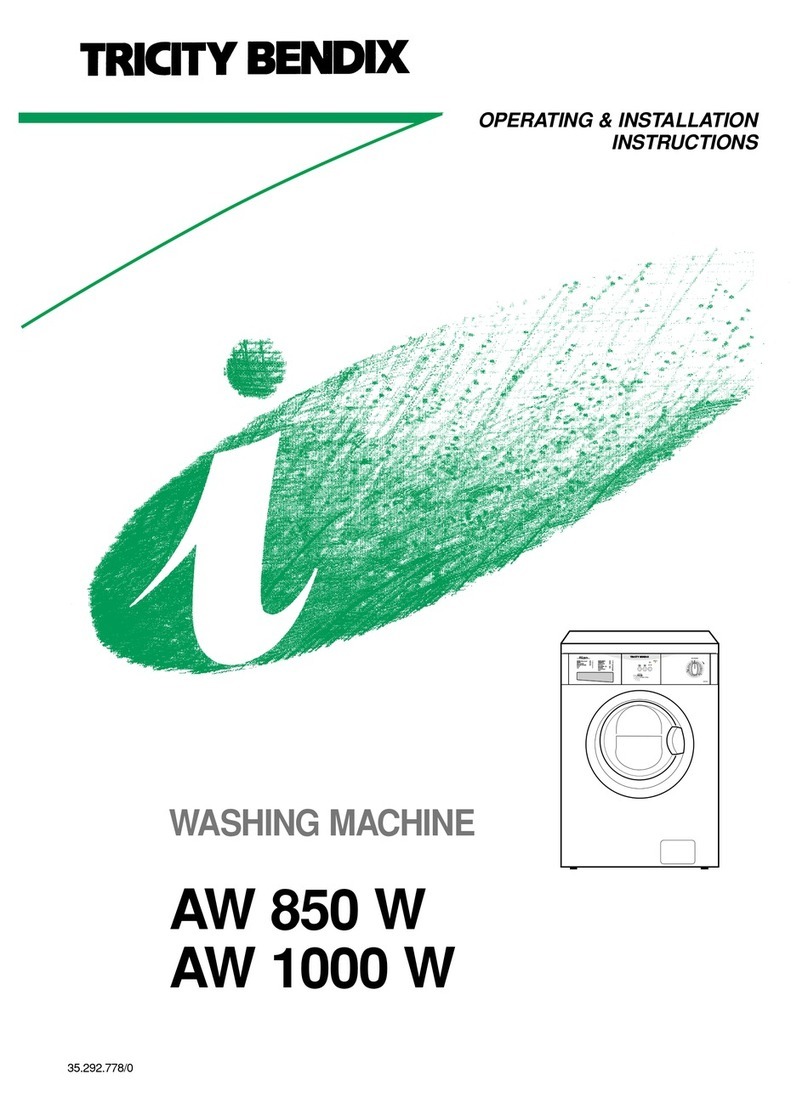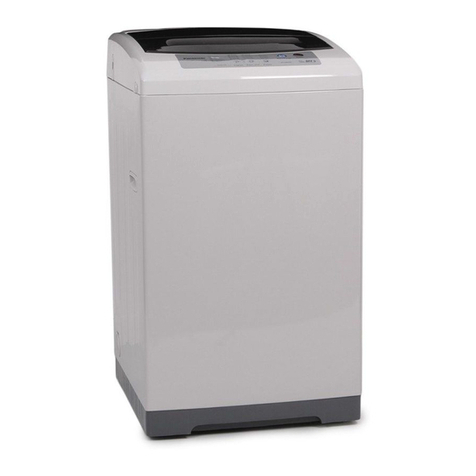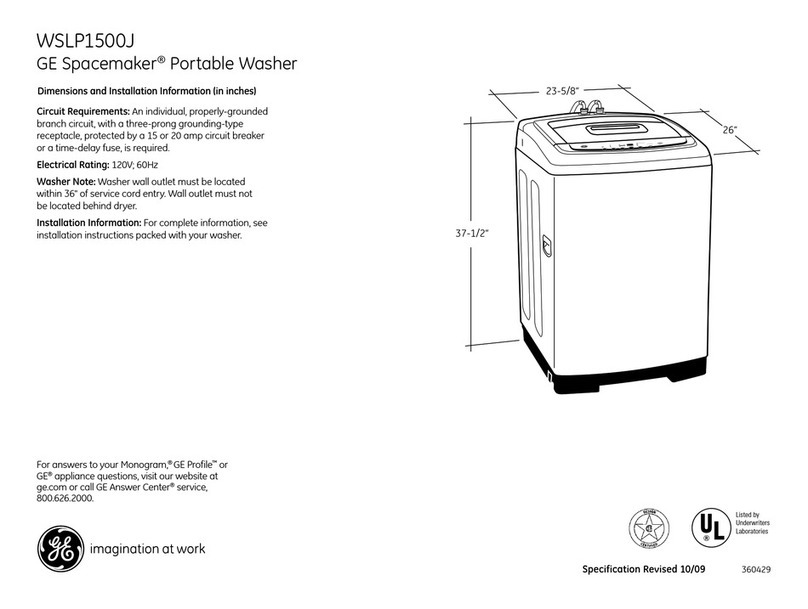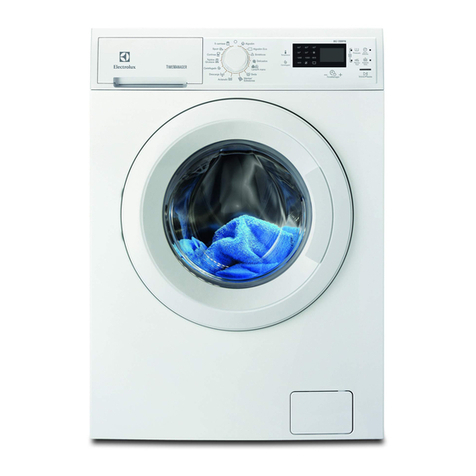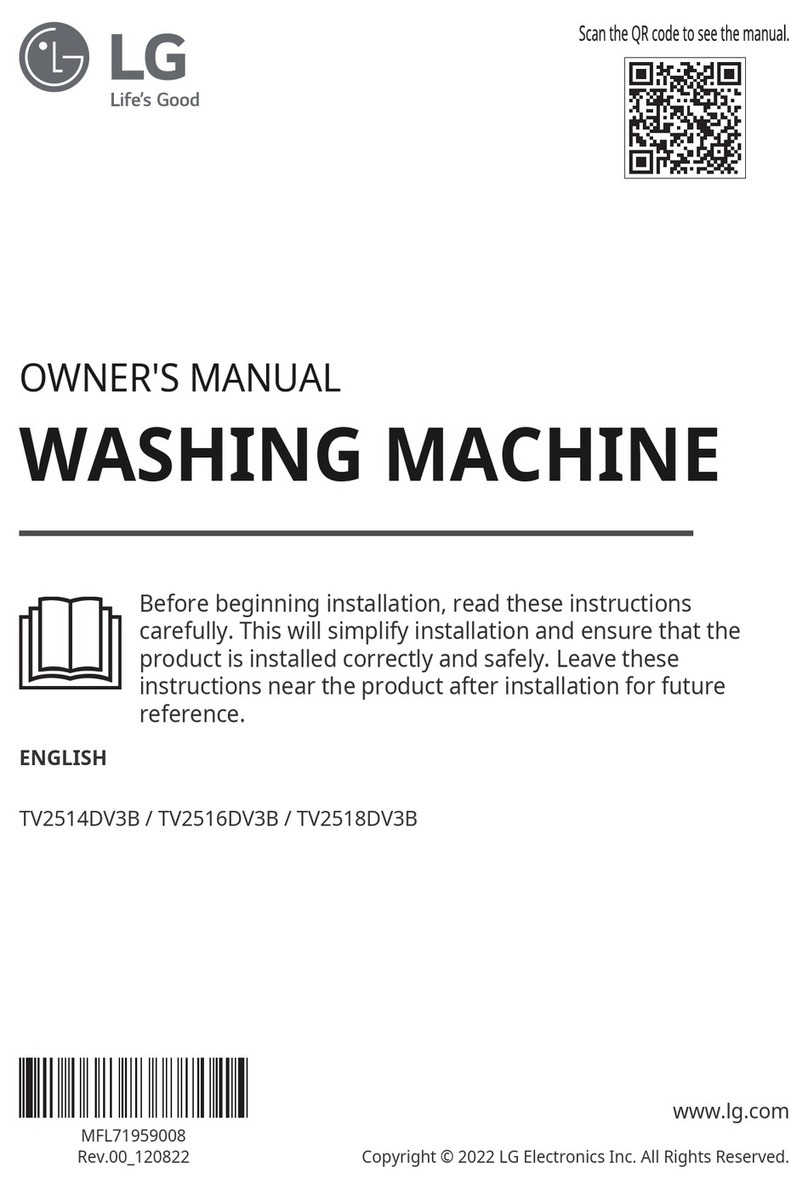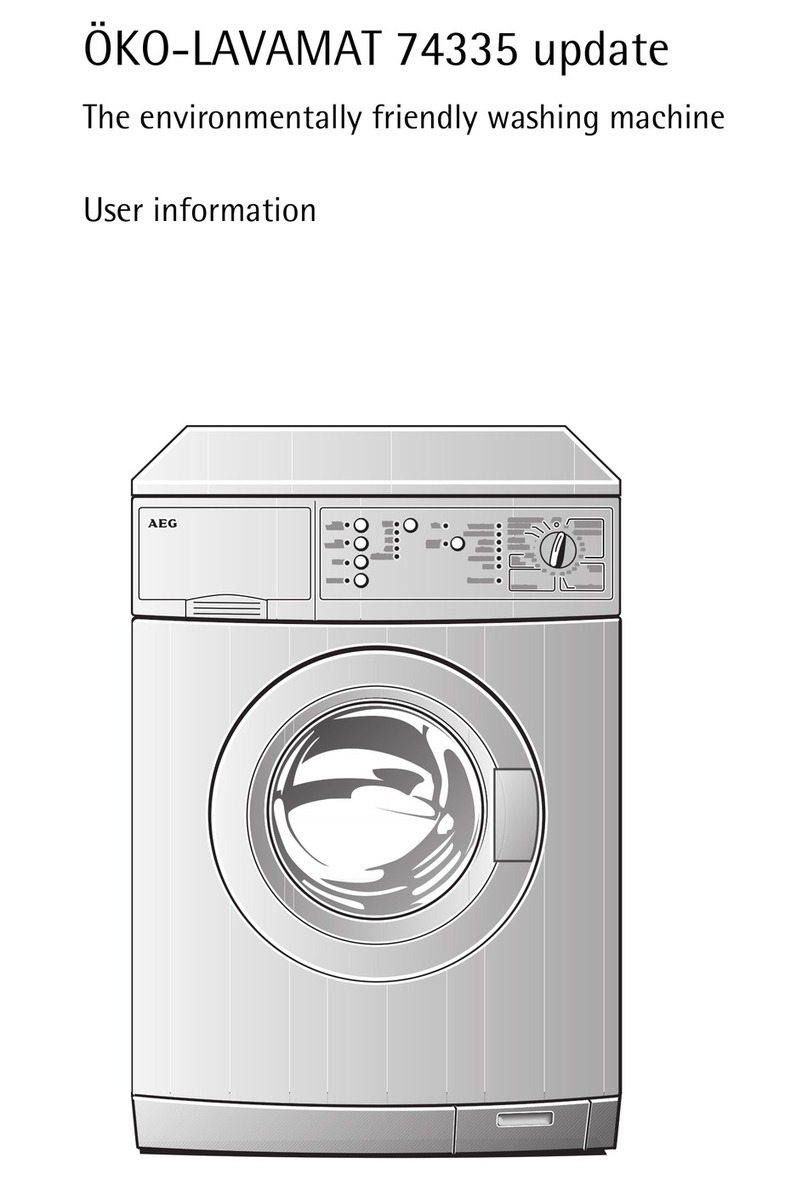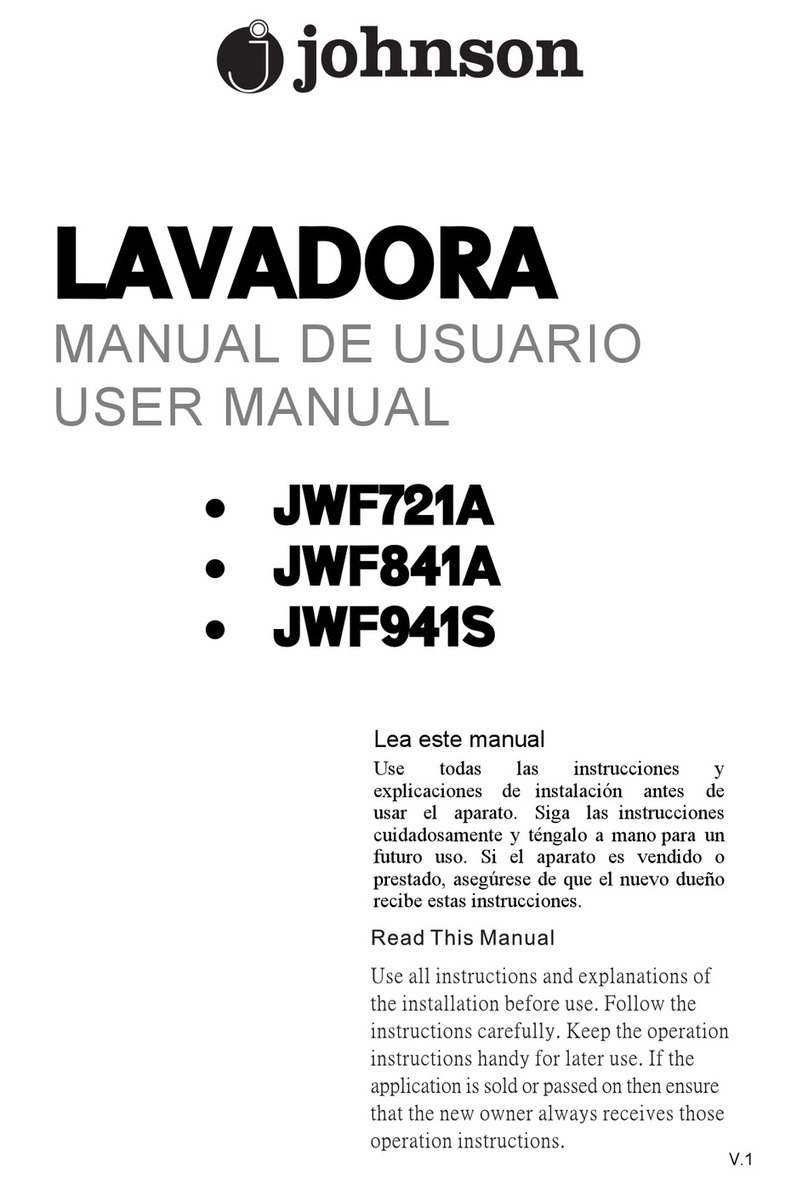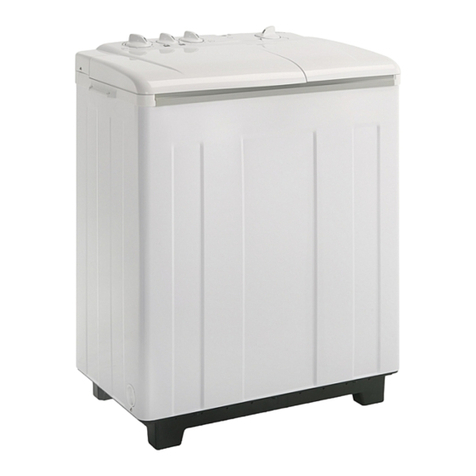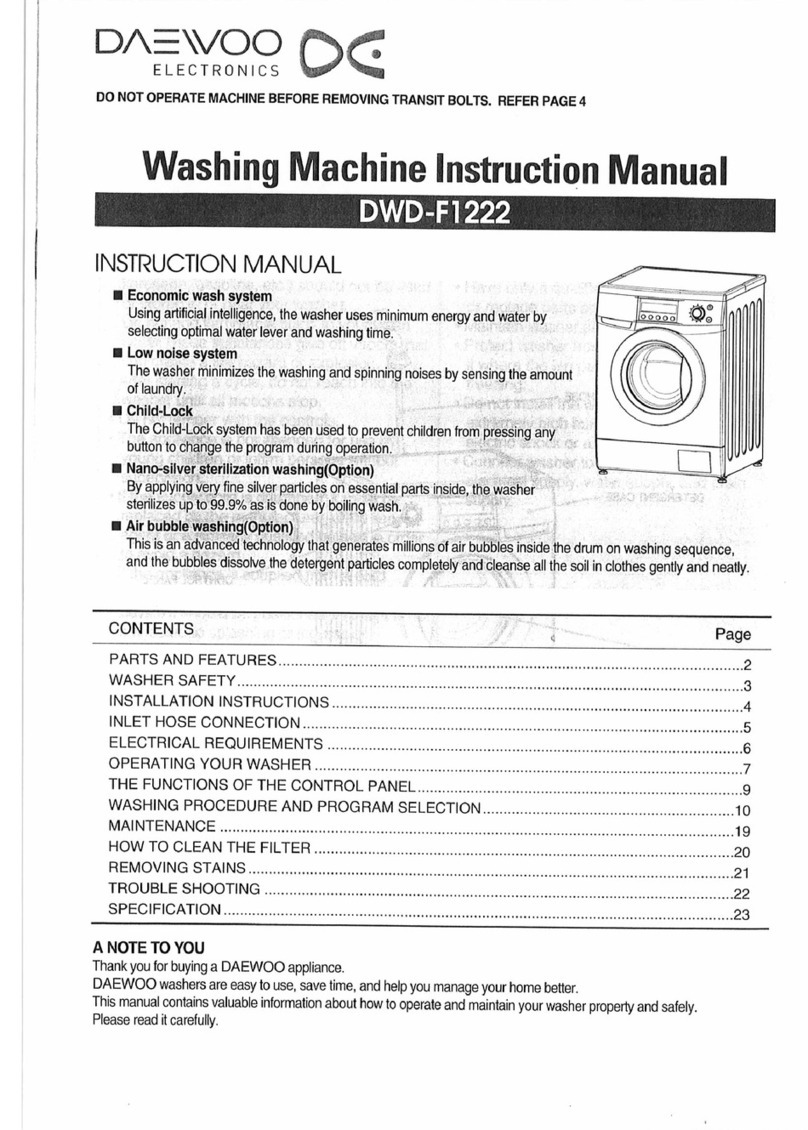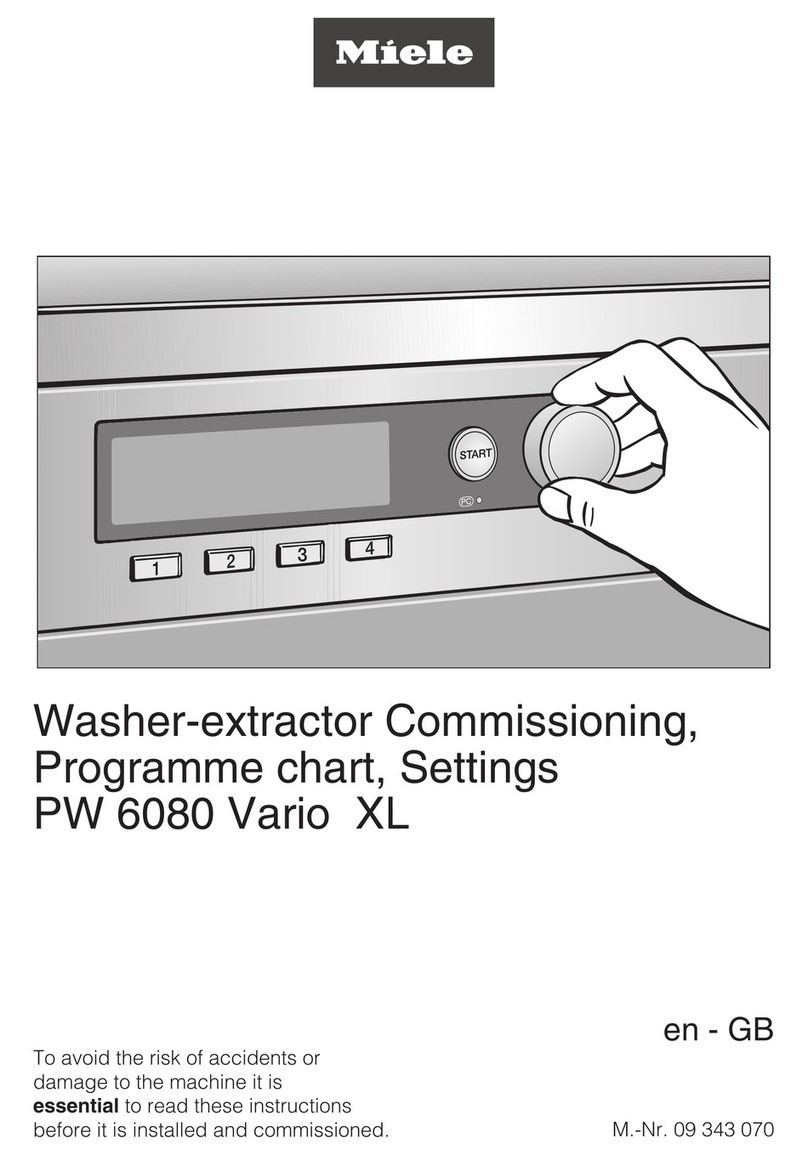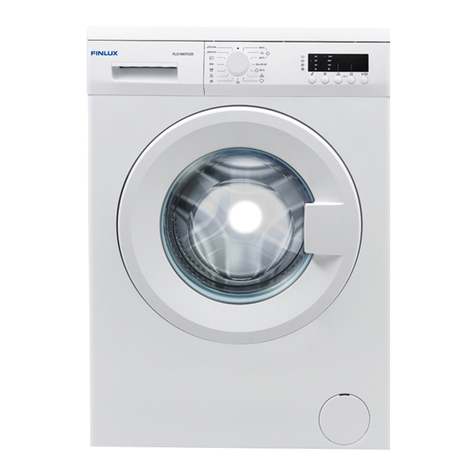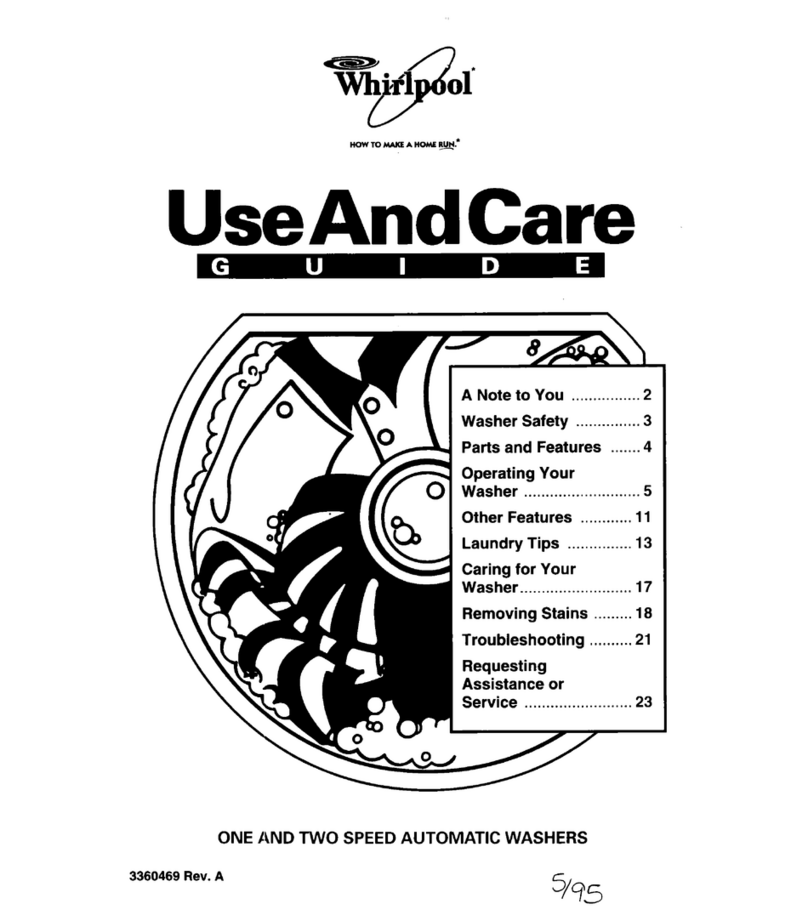Power Source and Cable
Use an independent household dedicated mains socket, rated at 13
Amp 220V to 240V AC. If the washing machine is plugged in with other
appliances, it may overheat and cause a fire.
•
Make sure the mains plug is pushed firmly into the socket. A loose
connection may overheat and cause electrical shock or a fire.
Check the mains lead and mains plug for any damage. If the mains cable
is damaged, it must be replaced by the manufacturer, its service agent or
similarly qualified persons in order to avoid a hazard.
Unplug the mains lead when cleaning the washing machine.
Do not touch the mains lead or mains plug with wet hands. It may cause an
electric shock.
Check the mains plug regularly for dirt. If dirt accumulates on the mains
plug, it could cause a fire. To prevent this, unplug the cable and clean the
mains plug with a dry rag.
•
If you disconnect the mains plug, hold onto the mains plug not the cable.
Pulling the cable may cause an electric shock or a fire.
•
Do not use a mains plug adapter or extension cable. It may overheat and
cause a fire.
Make sure your home voltage matches the voltage displayed on the
washing machine. If you are not sure, contact an electrician.
•
The mains plug must remain accessible to allow disconnection or an all
pole switch must be incorporated in the fixed wiring in accordance with the
wiring regulations.
To Prevent Injury
/
Damage
•
Do not climb on the washing machine. You may hurt yourself or damage the
washing machine.
•
When opening and closing the door ensure you keep fingers away from the
door hinge, or this could lead to injury.
•
Check your washing for objects such as nails, pins, coins, clips etc. They
could damage your laundry or the washing machine.
•
To prevent any large, heavy objects (e.g., buckles, large buttons, etc.) from
hitting the glass door, turn your clothing inside out or remove the heavy
objects. They could damage your laundry or the washing machine.
•
Do not wash, rinse or spin water-proof sheets or clothing. These may cause
vibration or washing machine failure during spin-drying, which could lead to
injury, damage to the washing machine or damage due to water leaking.
•
Be careful when draining hot water or any detergent from the drum.
4





